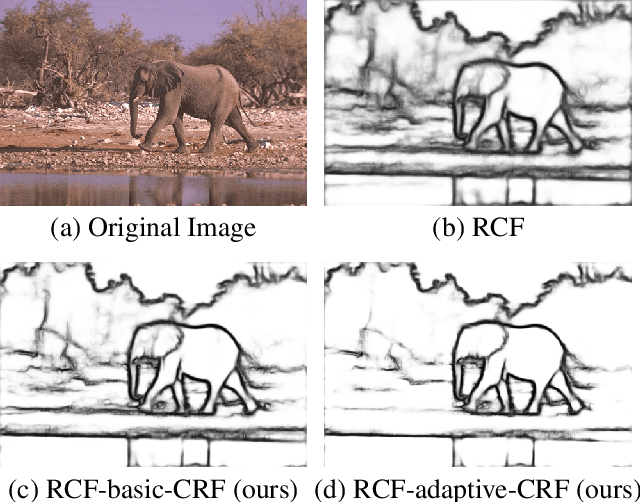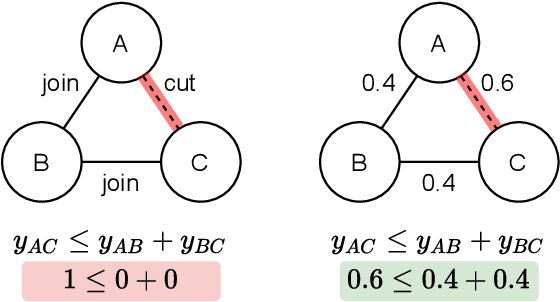Optimizing Edge Detection for Image Segmentation with Multicut Penalties
Paper and Code
Dec 10, 2021



The Minimum Cost Multicut Problem (MP) is a popular way for obtaining a graph decomposition by optimizing binary edge labels over edge costs. While the formulation of a MP from independently estimated costs per edge is highly flexible and intuitive, solving the MP is NP-hard and time-expensive. As a remedy, recent work proposed to predict edge probabilities with awareness to potential conflicts by incorporating cycle constraints in the prediction process. We argue that such formulation, while providing a first step towards end-to-end learnable edge weights, is suboptimal, since it is built upon a loose relaxation of the MP. We therefore propose an adaptive CRF that allows to progressively consider more violated constraints and, in consequence, to issue solutions with higher validity. Experiments on the BSDS500 benchmark for natural image segmentation as well as on electron microscopic recordings show that our approach yields more precise edge detection and image segmentation.
 Add to Chrome
Add to Chrome Add to Firefox
Add to Firefox Add to Edge
Add to Edge